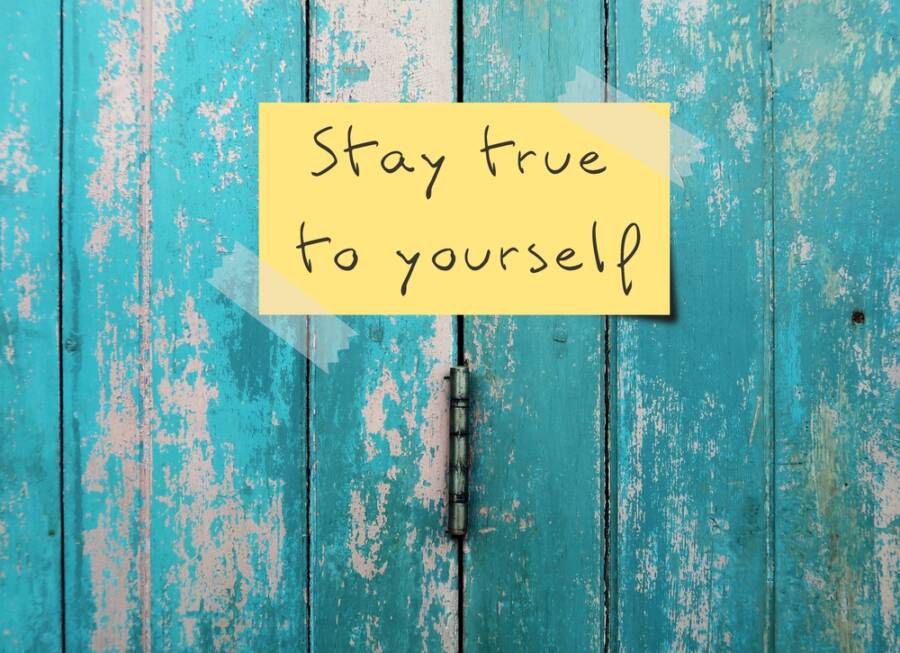You’ve learned these toxic habits during your childhood, and now you are carrying them with you through your adulthood!
We are designed to live following patterns. This is human nature, and we will act according to it. Our childhood is the most important period of our lives when it comes to learning new habits, and as you would expect, our parents play a huge role in this.
The early experiences we go through shape how we react to certain things, such as stimuli and threats. This is how coping mechanisms are born. The thing is that if our parents present toxic habits, we will internalize them, and all of this will affect us further in life.
If you want to have a better experience, you will need to learn how these coping mechanisms work and the toxic habits that created them.
We know that at first glance it all might sound complicated, but this is not the case. Baby steps. This is what you need to do, and we are here to support you along this journey. So, let’s start this in a simple manner, and let’s find out what childhood toxic habits might be affecting you right now.

Playing it safe (sometimes too safe)
When we are small, our parents make it crystal clear that safety is a priority. Avoid risks, stick to familiar paths, and always follow established rules. Yes, doing this is good because being safe is indeed important, but as you grow up, your parents should teach you how to slowly let go of all of this.
When this is not happening, you might carry this to adulthood, and it can become a problem that hinders personal growth and fulfillment. If you are aware that you were the “safe child,” diligent in your studies, obedient, and cautious, you might notice that now, at this moment, you are afraid to take risks. Why is this happening? because of the learned toxic behaviors.
You never had goals that were too ambitious, and new experiences simply terrify you. As we already said, it is better to keep yourself safe, but if this is keeping you from enjoying life to the fullest, well, this is now a problem.
Therapy is a good aid in this case, and it will help you to step out slowly from your comfort zone. Let yourself be free to explore new things and learn how to grow.
People-pleasing
What does it mean to be a people pleaser? Well, a people pleaser is someone who is always prioritizing the needs of others and as a result completely ignores or negates their own needs. As you can imagine, this is on the list of toxic habits for good reasons. Stop for a second and try to connect the dots and find out what happens to someone who plays the role of a people pleaser.
This is the most unpleasant position to be in because you are not the one responsible for the happiness of other people. Yes, you can do nice things for them because you want to do it, but you don’t have to do it. This type of behavior slowly steals your happiness and can also lead to depression if not managed properly.
If your love was conditional during your childhood, you learned that in order to be loved, you need to do or give something. Kids may learn to soothe caretakers in order to preserve peace, which can lead to ingrained self-sacrifice tendencies. Adults experience trouble asserting themselves and a powerful fear of rejection.
When you want to overcome these toxic behaviors, you need to honor your own needs. Start by practicing self-awareness: recognize situations where you habitually prioritize others at your expense. Healthy boundaries are very important here.
Perfectionism
Do you want everything to be perfect, or else you feel like your life has no meaning and the worst things will happen in a matter of seconds? Does not making things perfect give you lots of anxiety? If this is the case, you are most probably a perfectionist.
A deep-seated fear of failure can rapidly lead to chronic stress, anxiety, and dissatisfaction in adulthood. The constant self-criticism and all of the unrealistic expectations destroy your mental health, and you can end up depressed and burnt out.
Perfectionism stems from your childhood experiences when your parents were very strict or even punished you for any small mistake. If things were not perfect, they were not acceptable. This has led you to consider yourself not sufficient if you were not performing all of your tasks immaculately.
Toxic behaviors like this grow up with you, and if you don’t take care of them, you will carry them all of your life. To overcome perfectionism, it’s essential to recognize and embrace our imperfections. After all, no one is perfect, and our mistakes help us learn more and evolve. This is just how things work, and you should just go with the flow.
Suppressing emotions
Dealing with your emotions is something you learn during your childhood, and this is also the reason why so many people have problems with this. When you are a kid, your parents are the ones who help you navigate your emotions, and if they are not doing a great job, you will probably have to deal with the consequences later in life.
If all you heard when you were just a child were phrases like “don’t cry” or “don’t be angry,” you probably learned to internalize your emotions because they are bad. While this may seem like a coping mechanism to avoid immediate discomfort, it can have significant long-term consequences.
Consistently suppressing emotions is dangerous, and it can lead, over time, to health problems. Both mentally and physically. Mentally, it raises the likelihood of feeling anxious and depressed. Chronic stress caused by unresolved emotions can appear physically as a variety of diseases. For example, research has connected emotional repression to hypertension and heart disease.
During therapy, you can learn that you have to let yourself feel your emotions, good or bad. They are part of your experience, and you need to deal with them. Expressing them in a healthy way will help you have a balanced life.

Seeking validation
It’s natural to seek validation. Humans do this since birth, and they need the validation they get from their parents and caregivers. This external validation is what gives children the confidence they need to become independent in life. But when this need for validation persists in adulthood, this might become a problem.
There are many toxic habits out there, but when you are an adult and you seek the external validation others can give you, this might be a sign of low self-esteem. This can lead to problems with decision-making and the above-mentioned people-pleasing.
To overcome toxic behaviors like this, it’s essential to cultivate self-validation. You need to learn to acknowledge and appreciate all of your achievements. The opinion other people have is not as important as it might seem to you. Try to be more independent and trust yourself.
Do you have any of these toxic habits?
If you want to get better at coping with your trauma, this might help: Coping Skills for Trauma Deck
You should also read: Death: 5 Questions to Help You Think About It














One Response
Im no longer certain where you’re getting your information, but good topic. I needs to spend a while studying much more or understanding more. Thank you for magnificent info I used to be looking for this info for my mission.